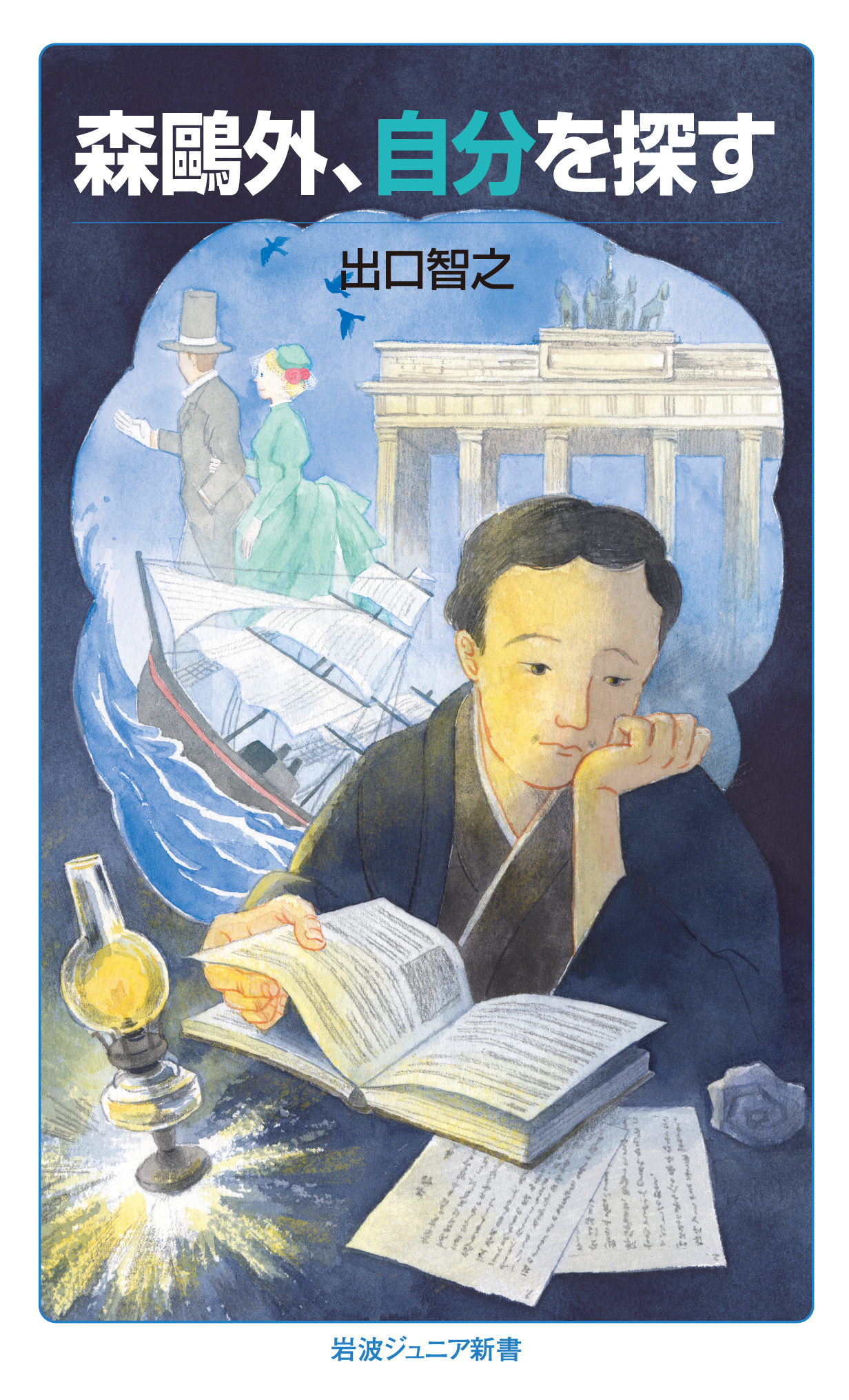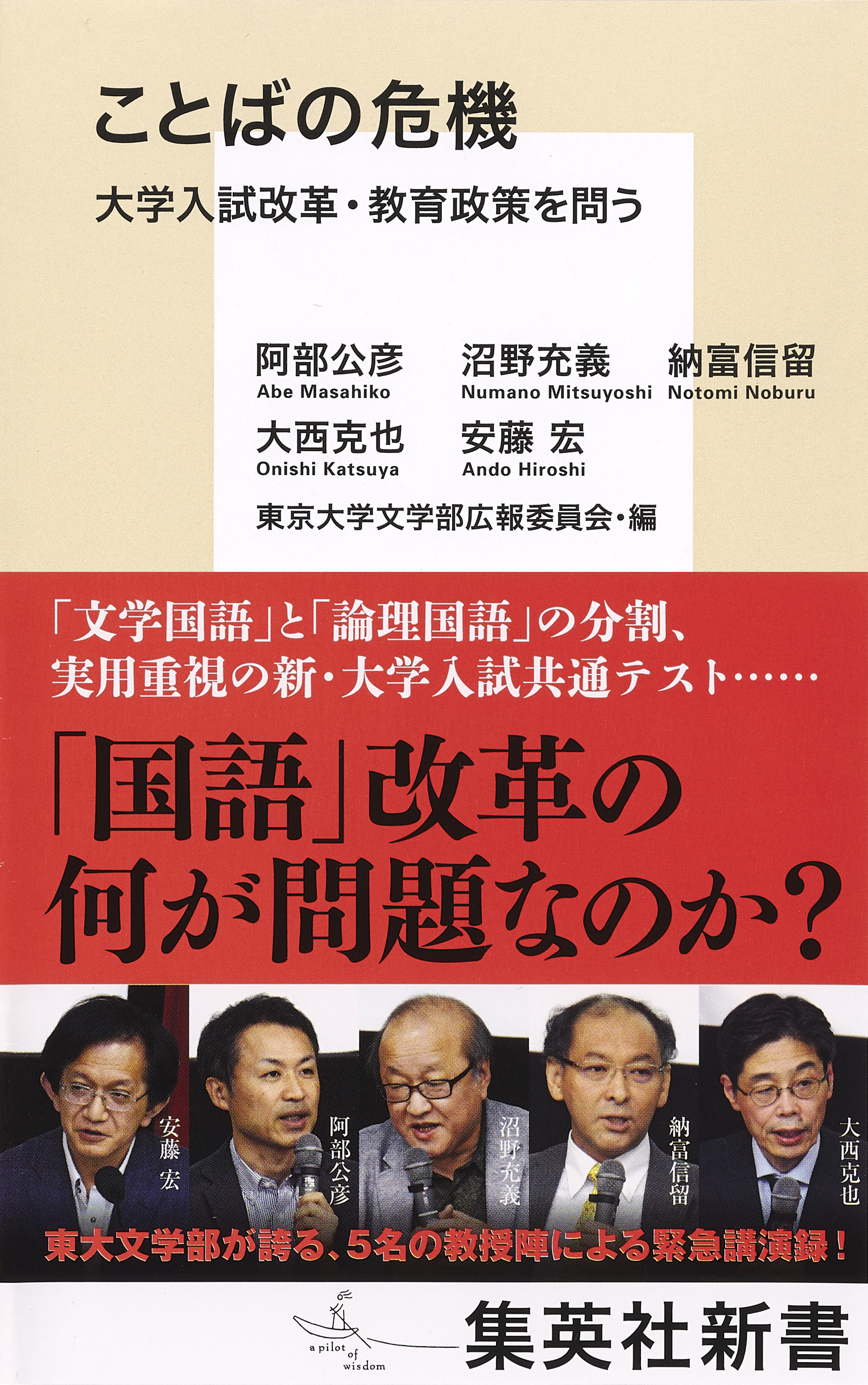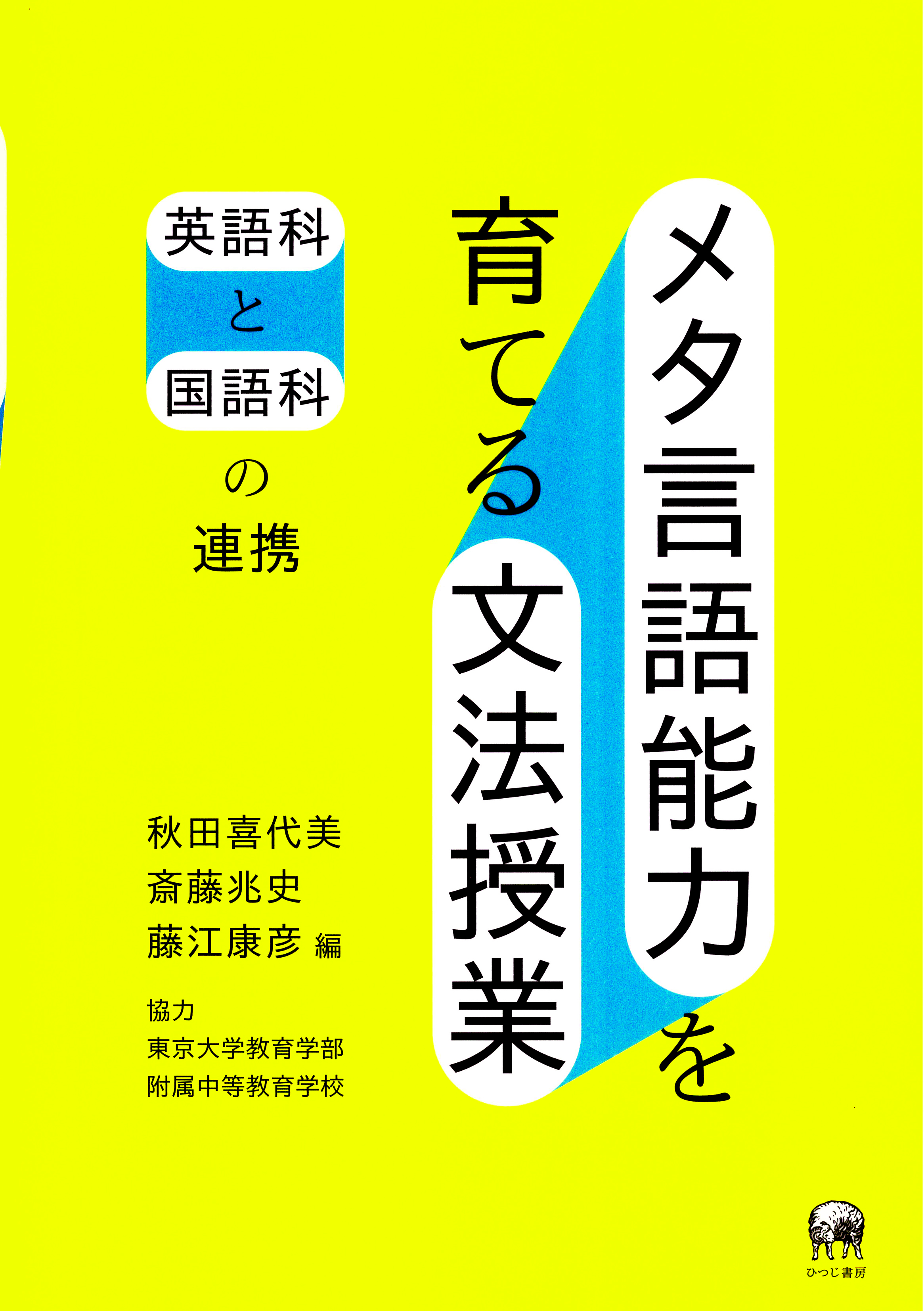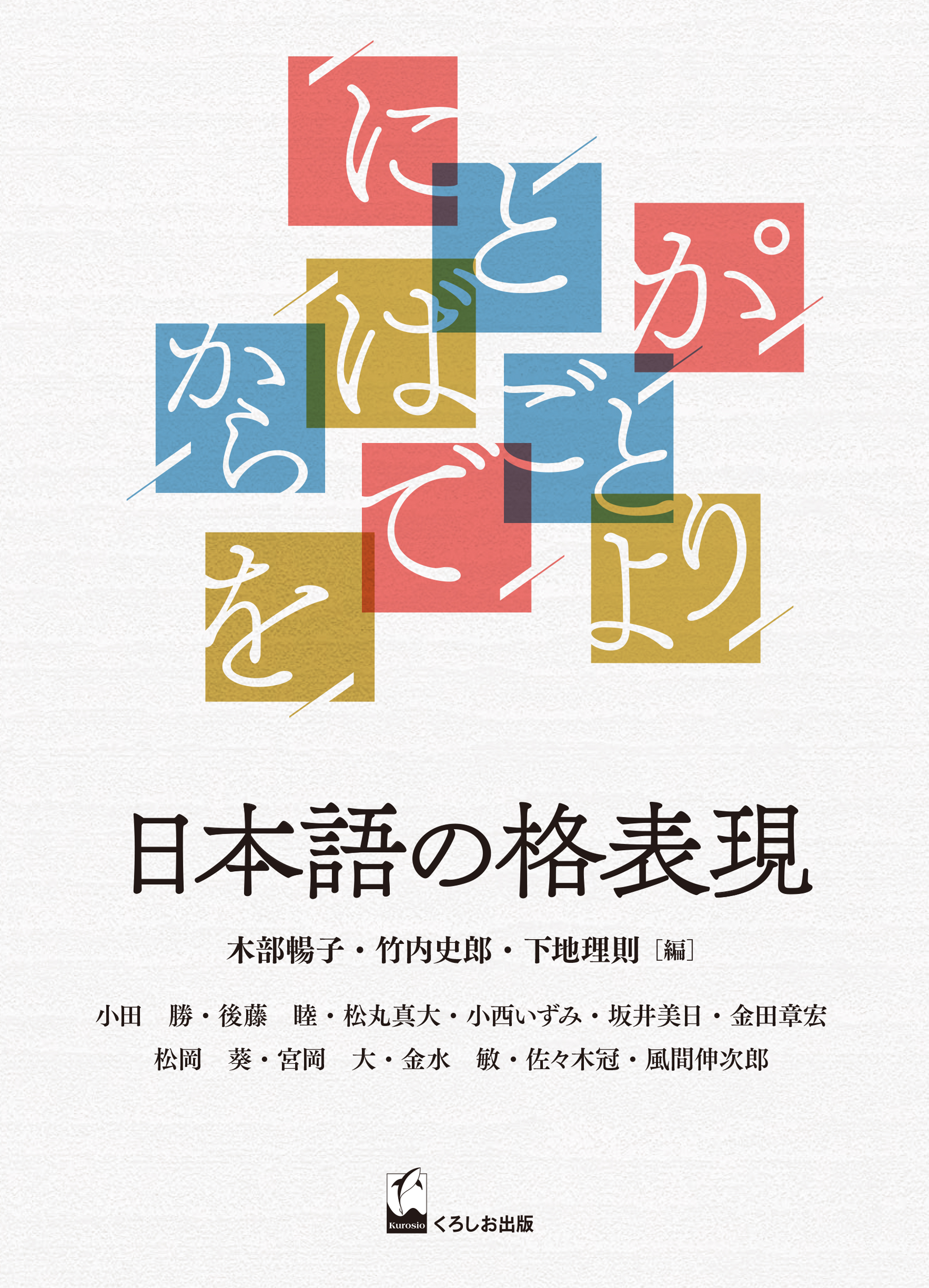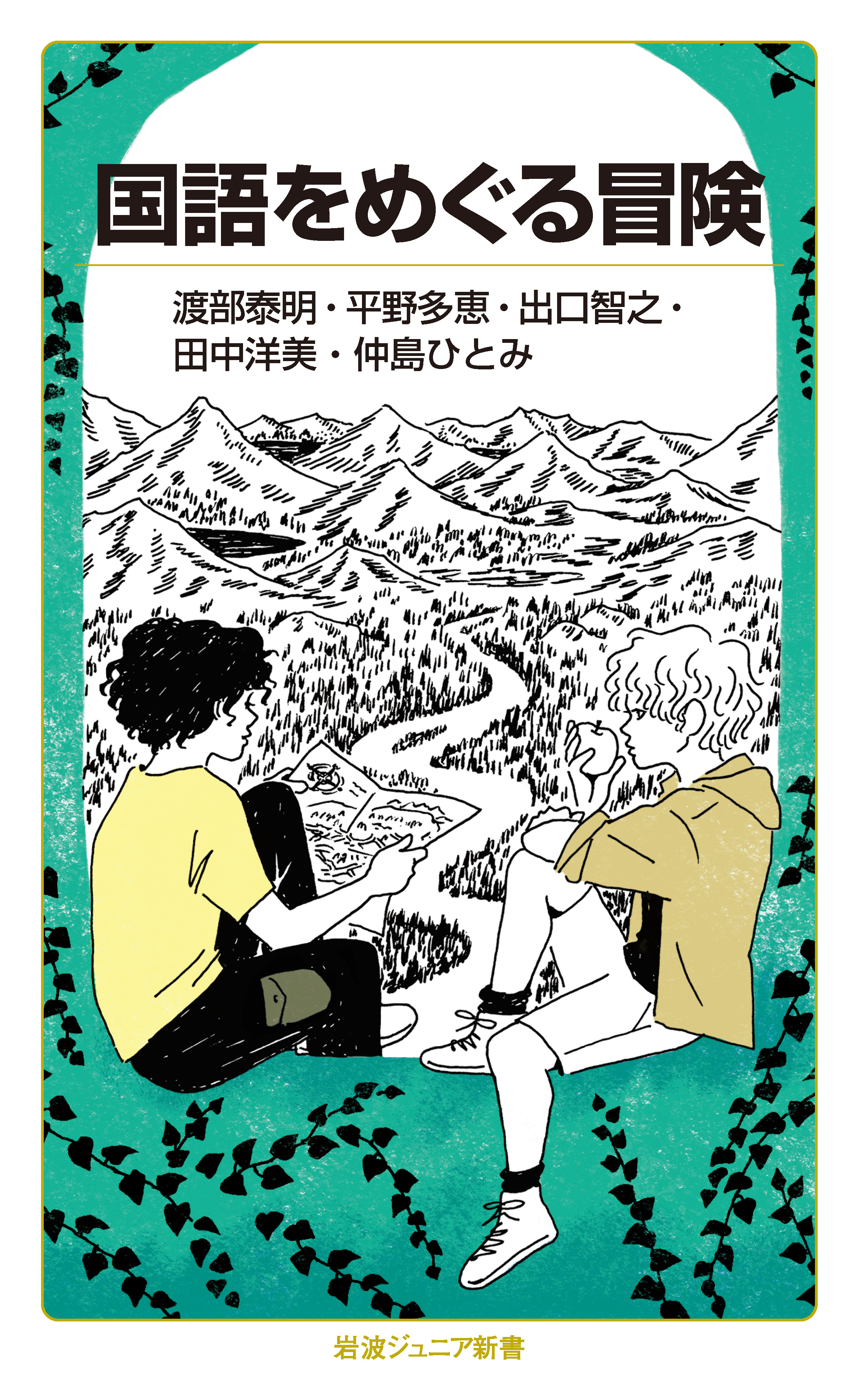
Title
Iwanami Junior Shinsho Kokugo o meguru Bouken (Seeking New Frontiers through the Language Arts)
Size
238 pages, paperback pocket edition
Language
Japanese
Released
August 20, 2021
ISBN
9784005009381
Published by
Iwanami Shoten
Book Info
See Book Availability at Library
Japanese Page
What skills should language arts curricula seek to develop and based on what content? These questions are the target of vigorous debate.
Yes, this is a very good thing. At the heart of this heated debate seems to be the belief that various skills can be nurtured through using and learning the Japanese language. It would be tragic if this debate led to the abolition of the Japanese language and adopting of a completely different language as some advocated after the end of the Meiji Restoration and after the end of the Second World War. We should be grateful that, using our first language alone, we can discuss advanced abstract concepts and complex theories; communicate and debate politics, the economy, and various social schemes; and with a little study, read Japanese documents from 1,300 years ago; and with a little more study, read (to some extent) historical Chinese documents from 2,500 years ago.
Naturally, debate from broad perspectives is needed regarding the design of institutions and policies. For discussion on this topic, please read Kotoba no kiki (The Language Crisis - A Re-examination of University Entrance Exam Reform and Educational Administration) by Masahiko Abe et al. introduced elsewhere on this website. This is a message from the University of Tokyo Faculty of Letters with which the first author of this book, Yasuaki Watanabe, was formerly affiliated.
That said, for people to act, they need to have an objective. Why and for what purpose should we study the Japanese language? What can be gained by studying the language? Education tends to become impersonal when only objectives and impacts are emphasized; but blindly pushing forward without any indication of the end goal does not motivate those being taught. Such an approach also does not motivate those teaching the subject.
Why not “just have the students read the governmental curriculum guidelines?” That wouldn’t work. It would be even more difficult to motivate junior and senior high school students to read the guidelines. To be certain, the guidelines say some good things. The first objective listed for the senior high school language arts curriculum indeed sounds wonderful: “To understand the characteristics of and develop the ability to appropriately use language needed for social life throughout one’s lifetime.” The society that today’s high school students will end up navigating will undoubtedly be even more globalized than today’s society. It is important for students to understand the characteristics of the Japanese language and how Japanese, through its interaction with other languages, has come to be what it is today, and, through this understanding, to be able to relativize their position in the world. At the same time, in the context of a complex and diverse society, the most appropriate use of language would be to recognize the feelings of others encoded in language, to use language that takes others into consideration, and to thereby contribute to the realization of an inclusive society. Of course, this is my own personal interpretation of what is meant by understanding the characteristics of and developing the ability to appropriately use “language needed for social life.”
It is from this perspective on the significance of studying Japanese and the possibilities that arise from language that we set out to write this book. To understand the power of language and to grow as people with the help of language, to reflect on ourselves using language as a steppingstone, to deepen our understanding of people by facing the words of others, to convey our thoughts and feelings to others using language, and to understand and develop new connections with people who speak other languages by learning about the development and characteristics of Japanese—all of these are important aspects of the language arts in the present day.
Language arts is, by no means, a useless, non-essential subject crammed with archaic knowledge. Rather, it is a “practical subject” that teaches us to understand and communicate with ourselves and others and, thereby, enables us to develop into independent, next-generation members of Japanese and international society, which, at times, may involve discarding our old selves.
I invite anyone who has felt or is feeling doubts or questions regarding the language arts, having studied the language arts in the past, or teaching language arts to read this book.
(Written by DEGUCHI Tomoyuki, Associate Professor, Graduate School of Arts and Sciences / 2022)



 Find a book
Find a book


